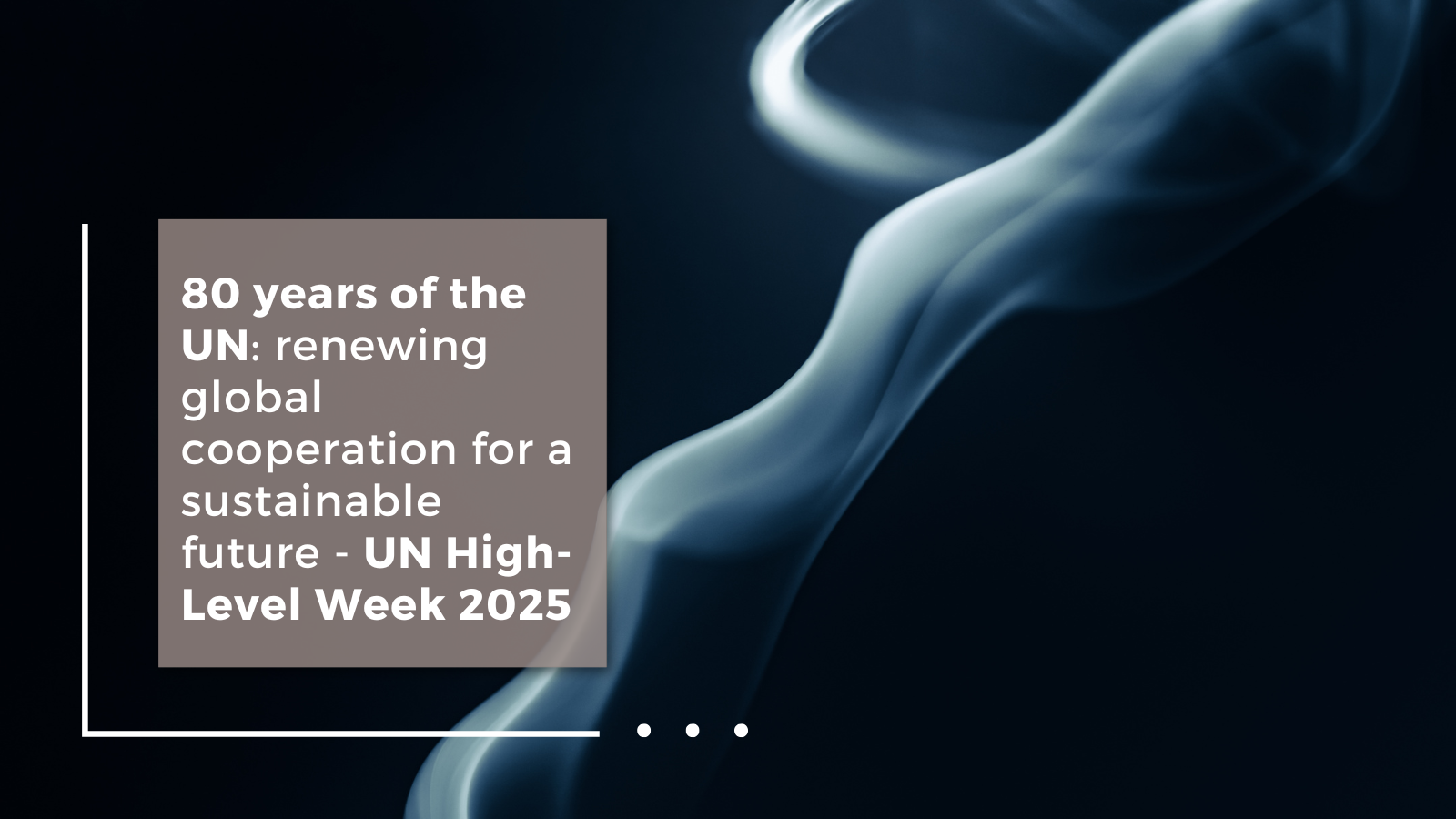
80 years of the UN: renewing global cooperation for a sustainable future – UN High-Level Week 2025
The 80th session of the United Nations General Assembly comes at a decisive moment for the international system. Under the motto “Together we are better: more than 80 years in the service of peace, development, and human rights”, the international community prepares to reflect on past achievements and, above all, to renew its commitment to a more inclusive, effective, and supportive multilateralism. The High-Level Week, held from 22 to 30 September 2025, highlights the urgency of delivering on the promise of the Sustainable Development Goals (SDGs) and revitalizing global cooperation.
In this same spirit, the recent High-Level Political Forum on Sustainable Development (HLPF), held in July, concluded with a strong call from Member States to accelerate coordinated action toward the SDGs. The meeting underlined that while there is consensus on the need to move forward, commitments must translate into concrete and sustainable measures that align with the vision presented in the General Assembly.
The current situation, however, reflects the magnitude of the challenge: barely 17% of the goals are on track to be achieved by 2030, while most show setbacks or insufficient progress. Adding to this, the worrying reduction of budgets in several donor countries disproportionately impacts the most vulnerable populations. This scenario reinforces the relevance of the High-Level Week as a key space to transform today’s reality.
At the same time, multilateralism faces unprecedented challenges that test its effectiveness. Increasing geopolitical fragmentation, the resurgence of national interests over global commitments, and simultaneous crises complicate the building of lasting consensus. International cooperation is constrained by political tensions, inequalities among countries, and the volatility of financial resources. This context makes clear that while the principles of solidarity and shared action remain fundamental, the practice of multilateralism requires renewal, flexibility, and real commitment.
To respond to this need, the 80th session will feature two innovative spaces alongside the main meetings. On one hand, the SDG Media Zone, organized by the Department of Global Communications, will offer interviews, roundtables, and debates on concrete solutions from 22 to 26 September. On the other hand, the SDG Pavilion, convened by the UN Deputy Secretary-General and the Office of Partnerships, will bring together leaders and experts from 20 to 26 September for interactive dialogues and in-depth analysis. Both forums will be open to the world via UN WebTV.
Momentum toward the Sustainable Development Goals (SDGs) will take center stage with the SDG Moment, designed to showcase initiatives that accelerate the 2030 Agenda. Added to this is the 30th anniversary of the Beijing Conference on Women, which will highlight both progress made and pending challenges in gender equality and the empowerment of women and girls.
The traditional General Debate will once again serve as the stage for Heads of State and Government to express national priorities and shared visions in the face of interlinked crises. Among the thematic dialogues, the Climate Summit stands out as a key milestone ahead of COP30 in Brazil, as well as the first biennial meeting on a sustainable, inclusive, and resilient global economy, focused on financing for development.
Health and youth will also occupy a central place. Discussions will address the prevention of non-communicable diseases, the promotion of mental health, and the future of the World Programme of Action for Youth, which marks its 30th anniversary. Meanwhile, nuclear disarmament will be reaffirmed as a global goal, alongside attention to humanitarian crises, particularly the situation of the Rohingya Muslims and other minorities in Myanmar.
Altogether, the 2025 High-Level Week not only commemorates eight decades of multilateralism, but also seeks to renew political and civic momentum to advance in peace, equality, health, and sustainability.
Carmen Coleto Martínez, Project Manager at FIBGAR



